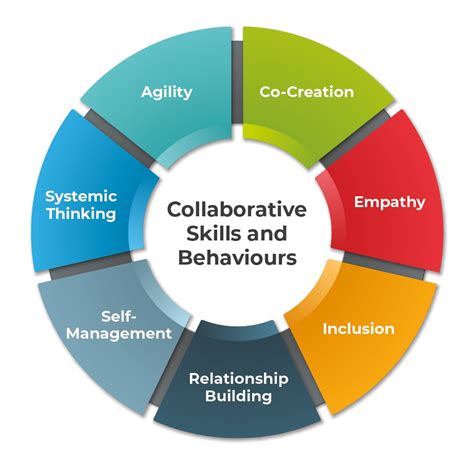Unveiling Collaboration Skills: What You Need To Know

Collaboration is an essential skill in today’s workplace. It involves working with others to achieve shared goals. Collaborative skills help you build relationships, solve problems, and enhance productivity. In this post, we’ll explore what collaboration is and how to develop the skills needed to be an effective collaborator.
What is Collaboration?
Collaboration is the act of working with others towards a common goal. It involves sharing knowledge, skills, and resources to achieve a desired outcome. Collaboration can take many forms, such as working on a project with a team, brainstorming ideas with colleagues, or seeking feedback from others.
Why is Collaboration Important?
Collaboration is important for several reasons. First, it helps to build stronger relationships with colleagues. When people work together towards a common goal, they develop a sense of camaraderie and trust. This can lead to improved communication and a more positive work environment.
Second, collaboration can lead to better problem-solving. When people from different backgrounds and with different perspectives come together, they can bring new ideas and insights to the table. This can lead to more creative solutions to problems.
Finally, collaboration can enhance productivity. When people work together, they can divide tasks and responsibilities, which can help to streamline processes and increase efficiency.
Collaboration Skills
Collaboration requires a specific set of skills. Here are some of the essential skills you need to develop to be an effective collaborator:
1. Communication
Effective communication is the foundation of collaboration. You need to be able to express your ideas clearly and listen actively to others. This involves using both verbal and non-verbal communication skills, such as body language and tone of voice.
2. Flexibility
Collaboration requires flexibility. You need to be open to new ideas and willing to adapt to changing circumstances. This means being willing to compromise and consider alternative solutions.
3. Leadership
Collaboration requires leadership skills. You need to be able to guide the group towards a common goal and help to resolve conflicts. This involves being able to motivate and inspire others.
4. Problem-Solving
Collaboration requires problem-solving skills. You need to be able to identify problems, analyze them, and develop solutions. This involves being able to think creatively and critically.
5. Time Management
Collaboration requires effective time management skills. You need to be able to prioritize tasks and meet deadlines. This involves being able to manage your own time and the time of others.
Developing Collaboration Skills
Developing collaboration skills takes time and effort. Here are some tips to help you develop your collaborative skills:
1. Build Relationships
Building relationships is key to effective collaboration. Take the time to get to know your colleagues and build trust. This can help to improve communication and reduce conflicts.
2. Practice Active Listening
Active listening is an essential part of effective communication. Practice listening to others without interrupting or judging them. This can help to build trust and improve collaboration.
3. Embrace Diversity
Diversity can bring new ideas and perspectives to a group. Embrace diversity and be open to different viewpoints. This can help to improve problem-solving and lead to more creative solutions.
4. Set Clear Goals
Clear goals are essential for effective collaboration. Set clear goals and communicate them to the group. This can help to ensure that everyone is working towards the same objective.
5. Encourage Feedback
Feedback is essential for improving collaboration. Encourage feedback from others and be willing to provide feedback yourself. This can help to improve communication and reduce conflicts.
Conclusion
Collaboration is an essential skill in today’s workplace. It requires a specific set of skills, including communication, flexibility, leadership, problem-solving, and time management. Developing collaborative skills takes time and effort, but it can lead to stronger relationships, better problem-solving, and increased productivity.
FAQs
What is the difference between collaboration and teamwork?
Collaboration and teamwork are similar concepts, but there are some differences. Collaboration involves working with others towards a common goal, while teamwork involves working together as a team to achieve a goal. Collaboration can involve people from different departments or organizations, while teamwork usually involves people from the same team or organization.
How can I improve my communication skills?
You can improve your communication skills by practicing active listening, using clear and concise language, and being aware of your body language and tone of voice. It can also be helpful to ask for feedback from others and to practice communicating in different settings.
What are some common barriers to collaboration?
Common barriers to collaboration include a lack of trust, poor communication, conflicting priorities, and a lack of clear goals or objectives. It’s important to identify these barriers and work to overcome them in order to improve collaboration.
